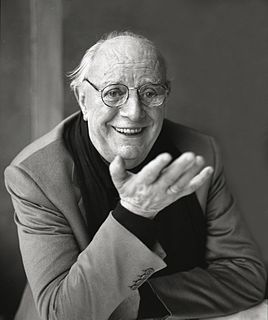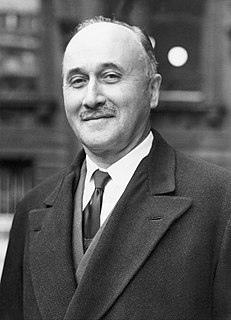A Quote by Dario Fo
Even before Europe was united in an economic level or was conceived at the level of economic interests and trade, it was culture that united all the countries of Europe. The arts, literature, music are the connecting link of Europe.
Related Quotes
The Federated Republic of Europe-the United States of Europe-that is what must be. National autonomy no longer suffices. Economic evolution demands the abolition of national frontiers. If Europe is to remain split into national groups, then Imperialism will recommence its work. Only a Federated Republic of Europe can give peace to the world.
There will be no peace in Europe if the States rebuild themselves on the basis of national sovereignty, with its implications of prestige politics and economic protection... The countries of Europe are not strong enough individually to be able to guarantee prosperity and social development for their peoples. The States of Europe must therefore form a federation or a European entity that would make them into a common economic unit.
Unemployment is higher in Europe than in the United States and primarily concentrated in immigrant minority populations, so people are worried about what's going to happen and if American-style ghettos are emerging in Europe. There are some of the problems there that America sees associated with the lack of economic inclusion - family breakdown, gang behavior, and racial tensions. I get the sense that in Europe they are much more concerned about these issues than in the United States.
What the U.S. does is it continues to print money when the economic situation gets difficult. This is what happened in the last depression during the summer of 2008 when they tried to resolve the economic crisis by printing valueless money. This is the business privilege given to them at the famous conference of Bretton Woods in 1944 when the United States emerged as the superpower after Europe and the rest of the world, mainly Europe, that had collapsed because of the war.
If I were a German today, I would be proud, proud but also worried. I would be proud of the magnificent achievement of rebuilding my country, entrenching democracy and assuming the undoubtedly preponderant position in Europe. But a united Germany can't and won't subordinate its national interests in economic or in foreign policy to those of the Community indefinitely. Germany's new pre-eminence is a fact - and its power is a problem - as much for Germans as for the rest of Europe.
In Europe, you have very different situation than you do in the United States. In Europe, it's very segregated. And you have the diasporas in Belgium that I saw. And they're being radicalized because they're not assimilated with the culture. I don't think we have that same situation in the United States.
The United States really only accounts for about 3 percent of the economic engagement with Russia. Europe is 40 percent, and so Europe's contribution to this pressure is far more than symbolic. It's very practical. And that's one of the many reasons why we have worked hard to remain in close coordination with our European partners.





































